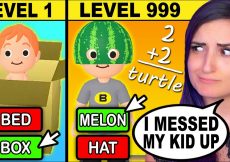White curd in baby poop is not an immediate cause of concern. Since breastfed babies are on a milk diet, sometimes, the fat globules of the breast milk may not be properly digested and may be expelled along with the poop. Formula-fed babies also experience the same. However, if your baby shows symptoms of allergies or disorders along with poop discoloration, consult your doctor.
Read about the causes of white curd in baby poop and when to contact a doctor.
Causes Of White Chunks In Baby Poop
The appearance of white chunks in the poop of breastfed or formula-fed babies is fairly normal. They may be clumps of undigested milk fat or undigested excess breast milk or formula protein that curdled.
Other common reasons for white curd in baby poop are (1) (2)
- Undigested food: If your baby has started consuming solid food, the white chunks in their poop may be undigested bits of food. It happens because babies cannot chew properly, and their digestive system is still adapting and developing as they grow and are introduced to new foods.
- Infection/illness: Although it is uncommon for breastfed baby poop to have white chunks because of food allergy or illness, you cannot rule out this possibility. If you notice signs of irritability, fever, pale or whitish frothy stool, and uncontrollable crying, consult your doctor.
Symptoms That May Accompany White Curds In Baby Poop
Although it is normal for babies to pass stool containing milk curds, consult your pediatrician if you notice the following symptoms as well.
- Pale poop: Pale yellow or grey poop may signify that the baby’s liver is not producing enough bile (3).
- White poop: Greyish or white poop in babies could indicate a blocked liver or biliary atresia. Though these conditions are rare in newborns, they should not be ruled out.
Other Colors Of Baby Poop
The color of normal baby poop varies as they grow, depending on their food, bowel movement, and gut health. However, some common colors of normal poop are as follows (4):
- Black poop: Also known as meconium, this is the baby’s first poop after birth. Black poop contains all the substances that the baby ingested while in the womb.
- Yellow poop: Your baby’s poop will eventually look yellowish and grainy in the first week after birth.
- Green poop: Once your baby starts consuming solids, the color of their poop may change depending on what they eat. Green baby poop signifies a diet rich in iron or iron supplements or can be due to green leafy vegetables.
- Brown poop: It signifies healthy digestion with no cause of worry.
- Red poop: If your child had anything containing food colors or beetroots, red poop is normal. However, if you notice specks of blood in the poop, consult your doctor as it may be a sign of constipation.
Signs To Call A Doctor
White chunks in baby poop are not a cause for concern. However, consult your healthcare provider if the following signs accompany it (5) (6):
- Pain in the stomach or abdomen
- Pale yellow or white poop
- Lactose intolerance symptoms such as wheezing, vomiting, and fussiness shortly after feeding
Regardless of whether your baby is breastfed or formula-fed, the white chunks in their poop may be clumps of undigested milk fat, which will go away as their digestive system develops. However, if your baby shows signs of discomfort or fever accompanied by pale or whitish poop, contact your doctor for advice.
References:
MomJunction’s articles are written after analyzing the research works of expert authors and institutions. Our references consist of resources established by authorities in their respective fields. You can learn more about the authenticity of the information we present in our editorial policy.
The following two tabs change content below.




































